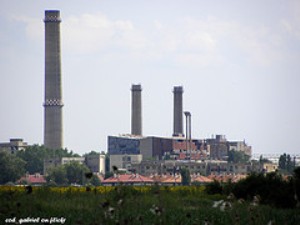Source: grainews.ca
Researchers in Edmonton plan to study the cellulose from flax, hemp and other crop fibres and wood pulp for the use of its extracts in a "super-strong" manufacturing material.
The federal and Alberta governments on Tuesday announced they will underwrite a $5.5 million pilot facility where researchers will process up to 100 kg per week of nanocrystalline cellulose (NCC) for testing in commercial applications.
NCC, or cellulose in a crystalline form, can be extracted from plant material and processed into solid, liquid and gel forms. The NCC form retains features such as high strength, electromagnetic response and, at a "nano" scale, very large surface area, making it useful in nanotechnology applications, the governments said.
An ounce of NCC added to a pound of plastic can make a composite material up to 3,000 times stronger than the original plastic alone, the governments said, noting possible uses such as composite materials, high-strength fibres and textiles, pharmaceuticals, medical and dental applications, food and cosmetic additives or "enhanced" papers, packaging and building materials.
"With numerous sectors in Alberta that could benefit from NCC applications, this initiative will help increase our competitiveness and create jobs in our communities," Edmonton-area MP Mike Lake said in a release from the federal/provincial Western Economic Partnership Agreement (WEPA).
The project's backers will include Alberta's ministry of advanced education and technology, putting up $2 million; Western Economic Diversification Canada, with $2.5 million; the "Alberta Innovates: Technology Futures" programming framework for commercializing technology, with $850,000; and industry backers such as pulp miller Alberta-Pacific Forest Industries (Al-Pac), with $200,000.

Alberta’s New Pilot Facility Produces Nanocrystalline Cellulose for Commercial Applications
Published on July 7, 2011 at 5:37 AM
By Cameron Chai
A new Edmonton-based pilot facility has been established in Canada, which will be the first to develop high quality nanocrystalline cellulose (NCC), the kind that researchers require to fully understand its effective applications.
The pilot plant valuing $5.5-million was built through collaboration of federal and provincial governments and by partnering with industry under Western Economic Partnership Agreement (WEPA). They will employ straw pulp and wood obtained from flax and hemp to produce up to 100 kg of NCC each week that would be tested for commercial usages.

Alberta Facility To Produce New Nano Material
Recent findings show that NCC has unique characteristics such as optical properties, high strength, and wide surface area at nanoscale level. This pilot plant will favor researchers to examine and evaluate NCC quality from a wide range of forest and agricultural materials for usage in numerous commercial applications that include plastics, automobile parts, paints, building materials, energy extraction, packaging, and health care products.
This project paves the way for new markets for Alberta’s forest industry in different fields such as drilling fluids, pharmaceuticals, composite materials and coatings, and many more.
This project showcases the role played by Alberta Innovates Technology Futures (AITF) in Alberta’s new research and innovation program and AITF provides technical skills and superior facilities to programs having commercial prospects, stated Dr. Gary Albach, President and CEO of AITF.
The Canada-Alberta WEPA will focus on priorities that satisfy regional requirements and increase provincial and national strategies for economical development. The four priority areas identified by them include business productivity and competitiveness, trade and investment, technology commercialization, and value added processing.
Source: http://www.alberta.ca
No comments:
Post a Comment